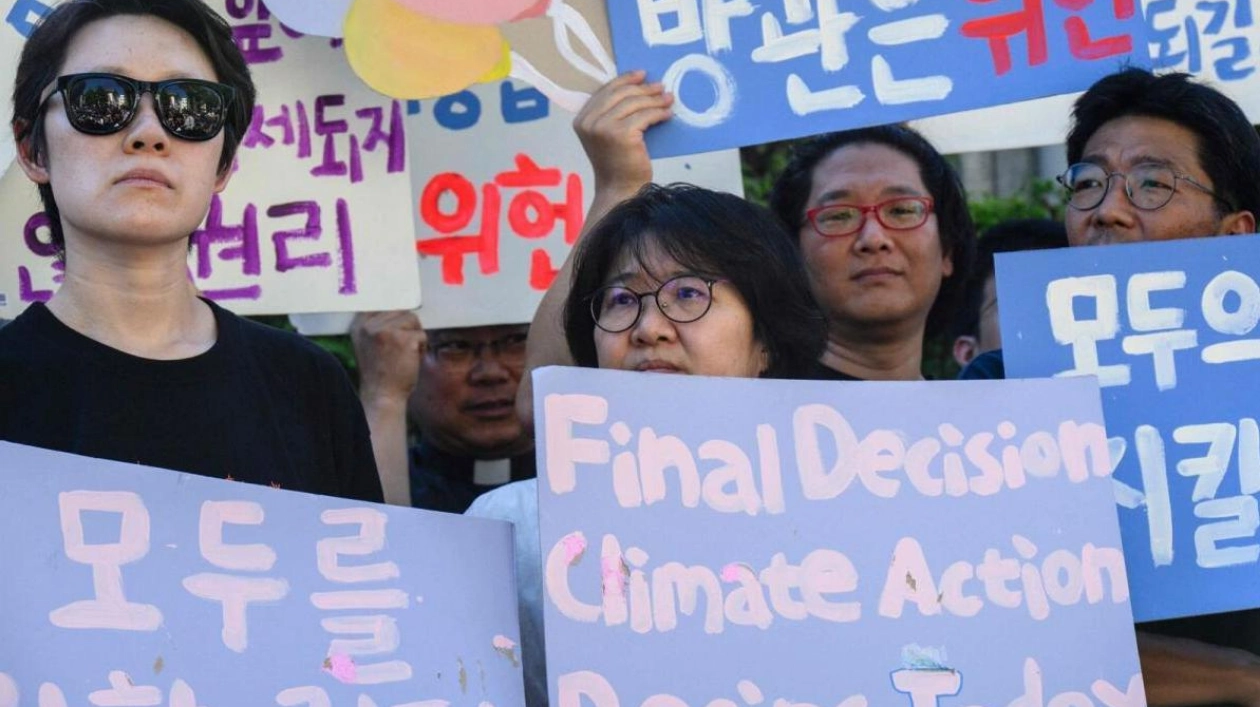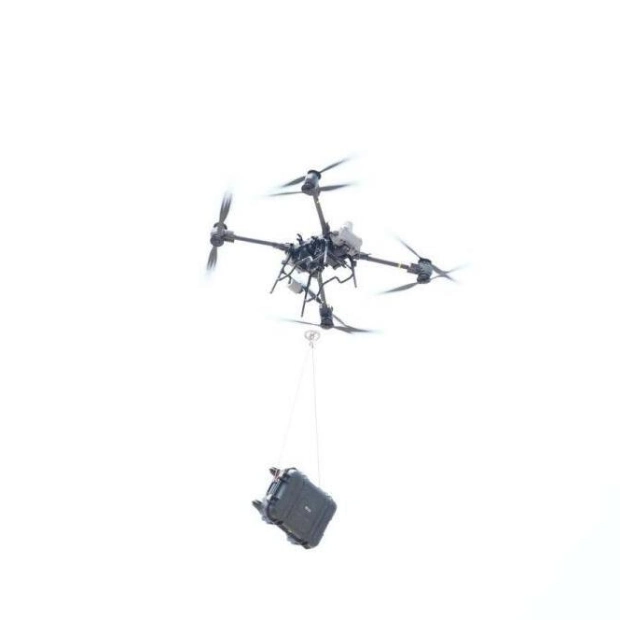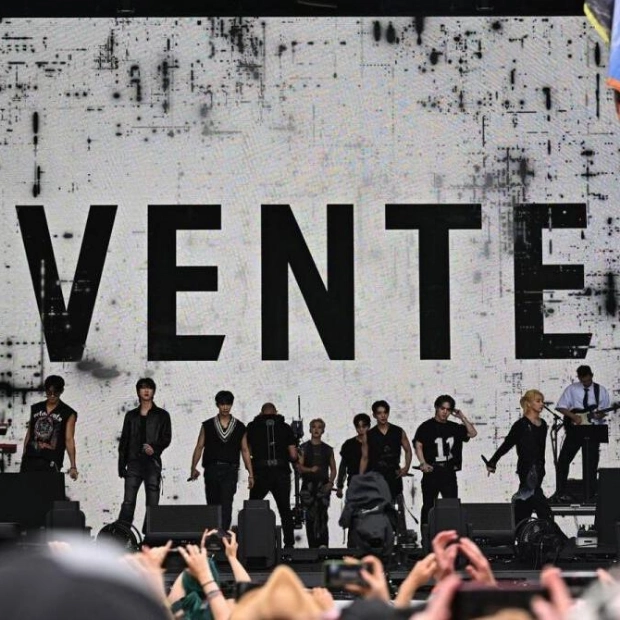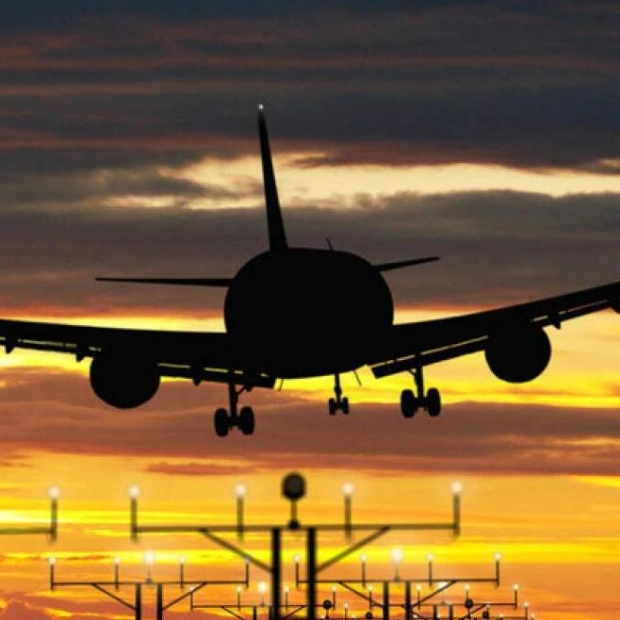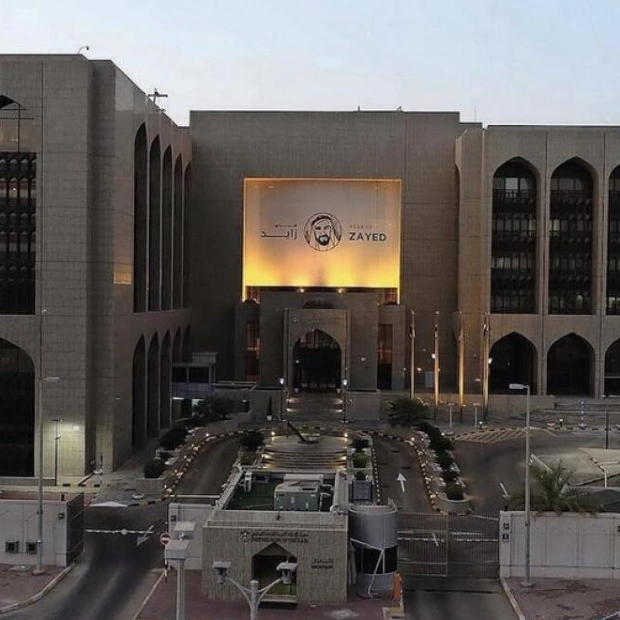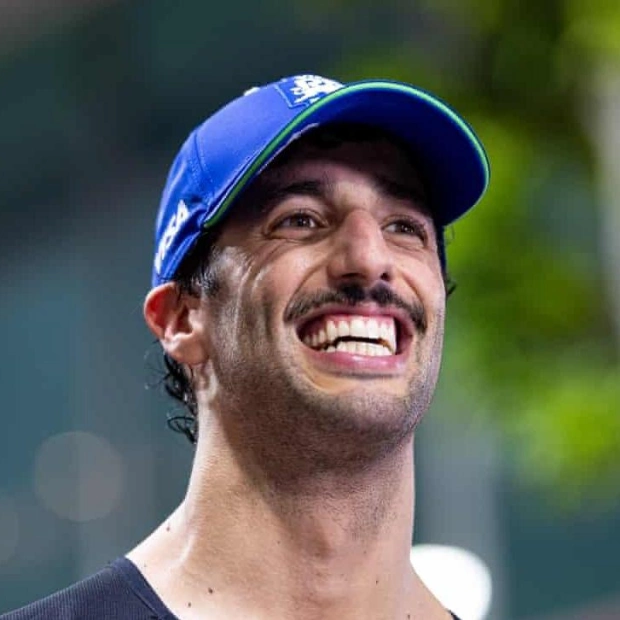South Korea's Constitutional Court made a significant ruling on Thursday, declaring that many of the nation's climate objectives were unconstitutional. This decision marked a historic win for young environmental activists, who celebrated with tears on the steps of the court. This was the first case of its kind in Asia, initiated by children and teenagers, including an embryo named as a principal plaintiff, who argued that South Korea's legally binding climate pledges were inadequate and unfulfilled, thus infringing on their constitutionally protected human rights.
Yoon Hyeon-jeong, one of the young activists, stated, "The Constitutional Court has just ruled that it is unconstitutional for the government to lack a goal for reducing greenhouse gas emissions from 2031 to 2050." She added, "It was determined that our right to live safely in the face of the climate crisis must be ensured," barely able to complete her statement through her tears. The court found that the government's modest climate targets violated the constitution because they "did not sufficiently safeguard the basic rights of the people," according to the legal representatives of the plaintiffs.
The case, known as "Woodpecker et al. v. South Korea" after the nickname of an involved embryo, now a toddler, comprised four petitions from children. In 2021, South Korea committed to legally reduce carbon emissions by 290 million tons by 2030 and achieve net-zero emissions by 2050. To meet this commitment, the country needs to cut emissions by 5.4 percent annually starting from 2023, a target it has yet to achieve. Consequently, Seoul will now be required to adjust its climate targets, according to Youn Se-jong, a lawyer for the plaintiffs.
Youn explained, "The National Assembly and the government of the Republic of Korea will need to revise regulations related to the Framework Act on Carbon Neutrality and set greenhouse gas reduction goals that consider the rights of future generations." He continued, "With today's ruling, we have established that climate change is a matter of our fundamental rights and that everyone has the right to be protected from it." Kim Seo-gyeong, a 21-year-old youth climate activist, who was part of the group that filed the initial case in 2020, expressed that the ruling validated the concerns of young people living in the climate crisis. The Seoul Ministry of Environment stated that it respected the court's decision and plans to faithfully implement follow-up measures.
The plaintiffs argued that unless Seoul acted more swiftly on climate goals, future generations would not only live in a degraded environment but also bear the burden of significant greenhouse gas reductions, thereby violating their fundamental rights. This ruling is the first in Asia to challenge a country's national greenhouse gas reduction targets and could set an important precedent for other courts in Asia to handle similar cases, according to Lin Yan-ting, a climate activist involved in a similar case in Taiwan.
Outside the Seoul court, 12-year-old plaintiff Han Jeah, who began the case at age 10, described the verdict as "like a wish come true." He emphasized, "We have the right to live safely and happily even in the climate crisis. This right should be protected under any circumstances and cannot be infringed upon by anyone." Han Jeah hoped to demonstrate through this lawsuit the depth of young people's understanding and concern about climate change.
